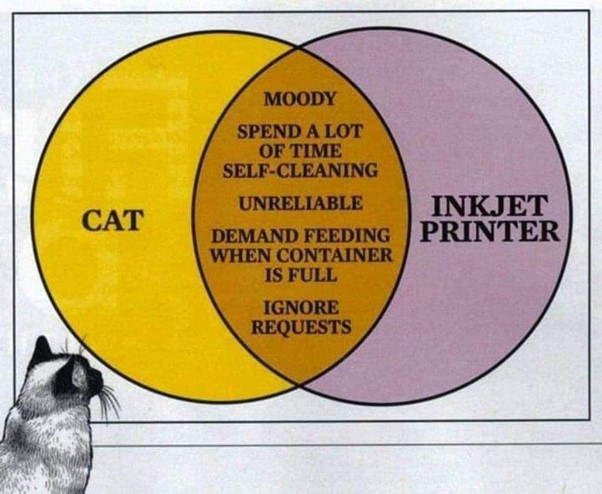Breaking news: Being an annoying boss is bad for productivity.
Back in the days before covid made the home office a viable thing, your correspondent would toil away in a large, open plan, noisy workplace.
For a miserable few months, he also was unfortunate enough to be allocated a desk right beside one of the office’s gigantic printers.
As anyone familiar with office printers will know, they are not the most reliable pieces of equipment.

This knowledge did not, however, prevent otherwise intelligent colleagues continually asking the poor sod (me) sat next to the device: “What’s wrong with the printer?”
If your humble correspondent had a dollar for every time he heard that question, he’d now be quaffing pastis and playing petanque in the south of France.
Which leads us to some intriguing research from a team at the University of Queensland which reveals that employees experience more stress at work when interrupted with requests for unnecessary or unreasonable tasks.
We say “intriguing” because, seriously? You needed actual research to find this out?
But let’s crack on.
Publishing this week in the European Journal of Work and Organizational Psychology, researchers from UQ’s School of Psychology detail their results from a two-phase study in which participants were deliberately interrupted with both “legitimate” and “illegitimate” tasks. They were then assessed for their stress levels and cognitive reactions to the interruptions.
The second phase of the study involved a simulation, where participants played the role of a human resources manager and were asked to respond to eight emails in 20 minutes. Again, they were interrupted in their work by an “urgent” request from their manager which may, or may not, have been within the scope of their roles.
The bottom-line outcome from this study was that people react differently depending on the type of work interruption which occurs.
“If a person is interrupted with a request to complete a task they perceive as illegitimate, which is pointless or outside their responsibilities, we found performance is compromised,” UQ’s Associate Professor Stacey Parker said in a media release.
“People believe these interruptions hinder progress on their usual work which can lead to increased anxiety and cognitive difficulties.”
Dr Parker said the results from the study provided valuable insight into how to improve productivity in the workplace.
“Before you interrupt a colleague with a task, stop and think about how they may perceive it and how their productivity will be affected,” she said.
“If it might be perceived as pointless or outside their role, perhaps find another way for it to be completed.”
Noble sentiments, we concur, even if they do appear to be blindingly obvious.
You can interrupt penny@medicalrepublic.com.au with legitimate story tips whenever you like.


